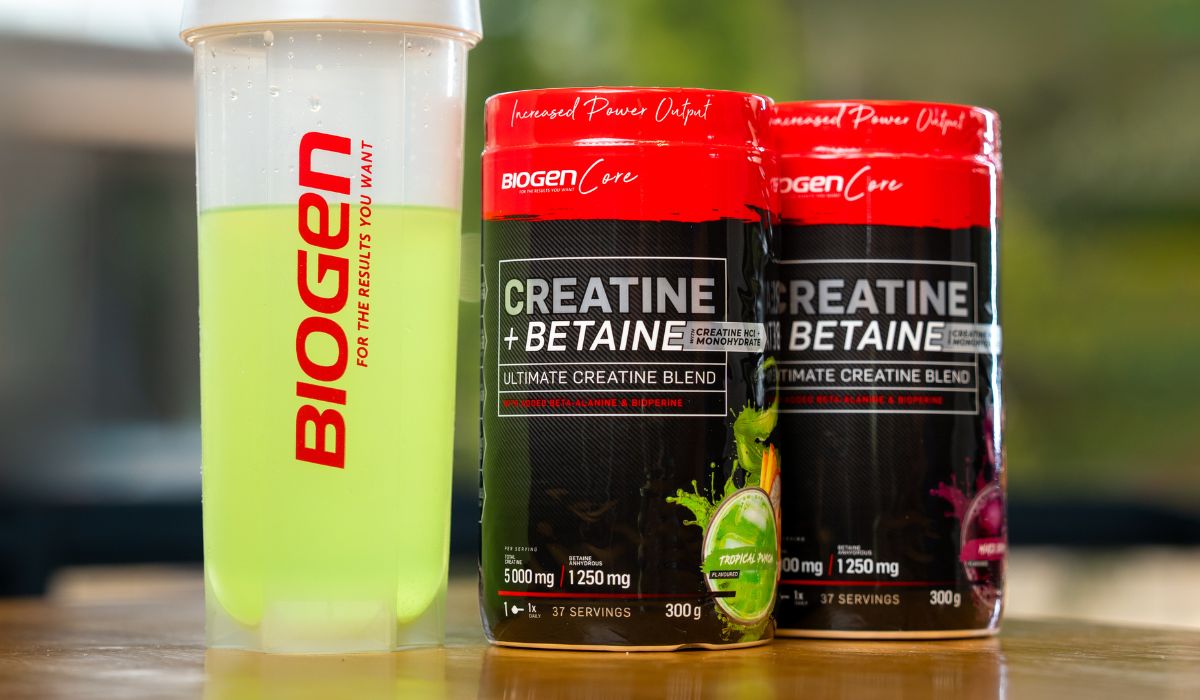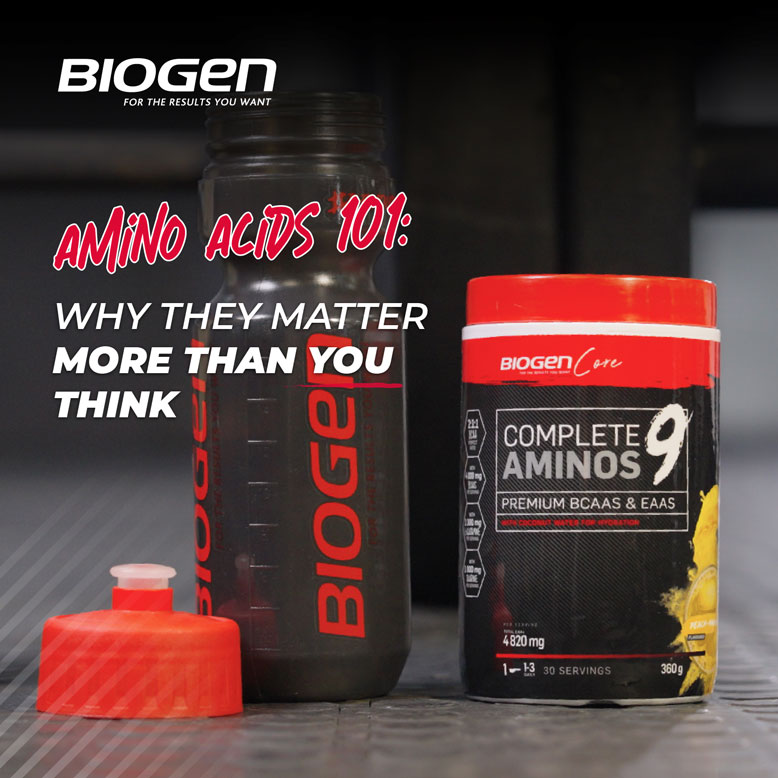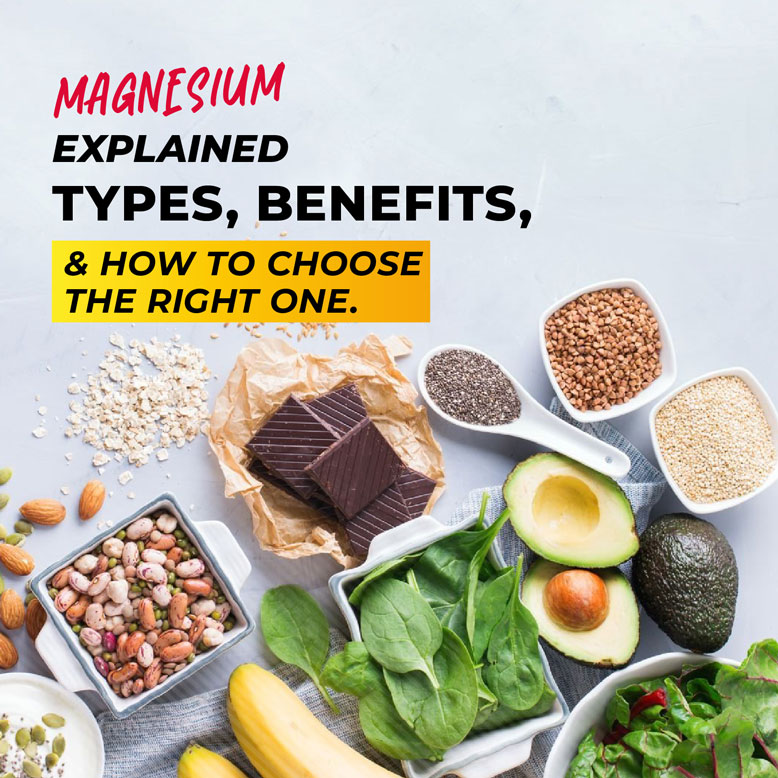
Betaine — also called betaine anhydrous – has numerous roles within the body that support various bodily process that may deliver performance-enhancing benefits, particularly when combined with creatine.
Betaine anhydrous is a compound naturally present in some foods, including beets, spinach, quinoa, certain seafood and grains like wheat bran. Our body also manufactures some of the betaine we need through a conversion process involving choline.
Better body composition
In terms of its potential performance benefits, a study¹ conducted on untrained collegiate females found that a betaine supplement may improve body composition by enhancing “reductions in fat mass” when accompanied by a resistance training program.
In addition, betaine may potentially boost protein synthesis, as study² participants in a 2013 study who took a supplement for six weeks “improved body composition”, showing improvements in body fat percentage, fat mass and lean body mass. They also increased arm size, which indicates they added muscle mass.
Some research³ links this muscle-building benefit to betaine’s effect on homocysteine, which is a substance that “directly impairs insulin signaling”.
Performance benefits
From an athletic perspective, betaine anhydrous has been shown to aid muscle development and may provide a performance boost.
In one study⁴, researchers concluded that betaine anhydrous may improve muscle strength and power by increasing total work capacity during exercise. This improved fatigue resistance came after active college males supplemented with betaine for two weeks. The control group taking the supplement “appeared to improve muscle endurance of the squat exercise, and increase the quality of repetitions performed”.
And betaine may also boost the benefit you get from one of the most ergogenic substances available – creatine. A 2022 study⁵ determined that betaine supplementation may have ergogenic effects by increasing creatine levels, with other research supporting betaine’s role in creatine synthesis.
By acting as a methyl donor in the body, betaine supports methionine production from S-adenosylmethionine (SAM), a key player in creatine production. Some animal studies⁶ and human trials have shown that betaine supplementation can increase SAM levels, potentially leading to higher creatine levels.
Biogen Creatine + Betaine is a performance blend of creatine HCL and creatine monohydrate to increase power output to assist with muscle development, coupled with 1250mg of betaine per serving to support muscle development and provide a proven performance boost.
Added betaine supports muscle growth and strength output with coconut water powder to support optimal hydration and Beta-alanine for an added endurance boost.
References:
- Cholewa JM, Hudson A, Cicholski T, Cervenka A, Barreno K, Broom K, Barch M, Craig SAS. The effects of chronic betaine supplementation on body composition and performance in collegiate females: a double-blind, randomized, placebo controlled trial. J Int Soc Sports Nutr. 2018 Jul 31;15(1):37. doi: 10.1186/s12970-018-0243-x. PMID: 30064450; PMCID: PMC6069865.
- Cholewa JM, Wyszczelska-Rokiel M, Glowacki R, Jakubowski H, Matthews T, Wood R, Craig SA, Paolone V. Effects of betaine on body composition, performance, and homocysteine thiolactone. J Int Soc Sports Nutr. 2013 Aug 22;10(1):39. doi: 10.1186/1550-2783-10-39. PMID: 23967897; PMCID: PMC3844502.
- Li Y, Jiang C, Xu G, Wang N, Zhu Y, Tang C, Wang X. Homocysteine upregulates resistin production from adipocytes in vivo and in vitro. Diabetes. 2008 Apr;57(4):817-27. doi: 10.2337/db07-0617. Epub 2008 Jan 11. PMID: 18192543.
- Hoffman JR, Ratamess NA, Kang J, Rashti SL, Faigenbaum AD. Effect of betaine supplementation on power performance and fatigue. J Int Soc Sports Nutr. 2009 Feb 27;6:7. doi: 10.1186/1550-2783-6-7. PMID: 19250531; PMCID: PMC2651845.
- Yang MT, Lin HW, Chuang CY, Wang YC, Huang BH, Chan KH. Effects of 6-Week Betaine Supplementation on Muscular Performance in Male Collegiate Athletes. Biology (Basel). 2022 Jul 29;11(8):1140. doi: 10.3390/biology11081140. PMID: 36009767; PMCID: PMC9404903.
- Kusum K. Kharbanda, David D. Rogers, Mark E. Mailliard, Gerri L. Siford, Anthony J. Barak, Harriet C. Beckenhauer, Michael F. Sorrell, Dean J. Tuma, A Comparison of the Effects of Betaine and S-Adenosylmethionine on Ethanol-Induced Changes in Methionine Metabolism and Steatosis in Rat Hepatocytes1, The Journal of Nutrition, Volume 135, Issue 3, 2005, Pages 519-524, ISSN 0022-3166, https://doi.org/10.1093/jn/135.3.519.










